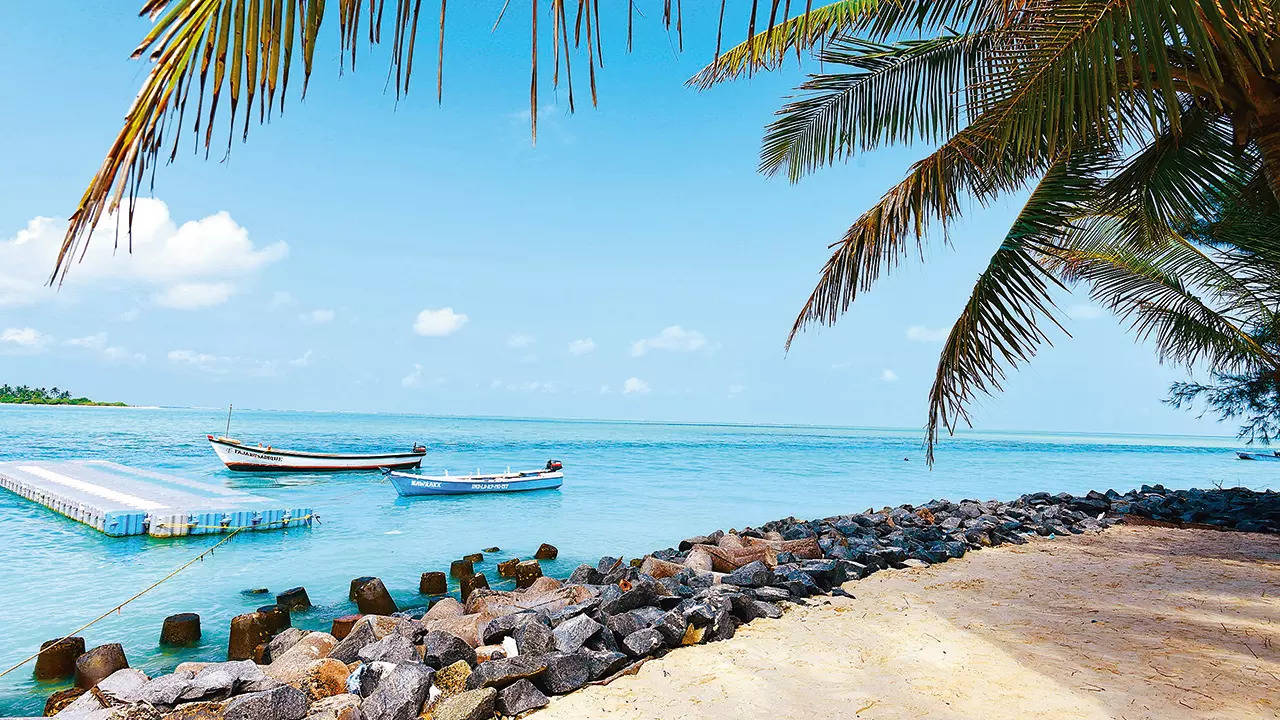
The recent controversy surrounding tourism development in Lakshadweep, reminiscent of the Maldives model, has sparked a crucial debate on sustainability. While the Maldives is often hailed for its successful blend of luxury and environmental conservation, replicating this model in Lakshadweep may prove challenging, considering the unique ecological and socio-economic dynamics of the Indian archipelago.
LAKSHADWEEP’S RICH ECOSYSTEM:
Lakshadweep, a group of coral islands in the Arabian Sea, boasts a rich and fragile marine ecosystem. The region is home to diverse coral reefs, marine life, and indigenous flora. The delicate balance that sustains this ecosystem is integral to the livelihoods of local communities and the overall well-being of the islands.
THE CONTROVERSIAL DEVELOPMENT PLANS:
Controversial proposals for tourism development in Lakshadweep have raised concerns about the potential impact on the environment. Plans involving large-scale infrastructure projects, such as the introduction of seaplanes, extensive resort construction, and changes to land use policies, have fuelled apprehensions about the adverse effects on the islands’ delicate ecology.
MALDIVES’ SUCCESS AND LAKSHADWEEP’S CHALLENGES:
The Maldives’ tourism model, often considered a paragon of sustainability, is not a one-size-fits-all solution. Lakshadweep faces unique challenges, including higher population density, limited land availability, and a more significant dependence on traditional livelihoods such as fishing. Attempting to replicate the Maldives model without considering these factors could jeopardize the delicate balance that sustains Lakshadweep’s environment.
OVERWATER STRUCTURES AND MARINE IMPACT:
The iconic overwater bungalows that characterize Maldivian resorts may not be easily adaptable to Lakshadweep’s ecological context. Such structures, while offering a luxurious experience, can have detrimental effects on coral reefs and marine life. Lakshadweep’s coral ecosystems, already vulnerable to climate change, could face irreversible damage if not managed carefully.
CULTURAL SENSITIVITY AND LOCAL COMMUNITIES:
Sustainability in Lakshadweep also involves preserving the cultural fabric of the islands. The close-knit communities, with their unique traditions and lifestyles, need to be considered when formulating tourism strategies. Balancing the economic benefits of tourism with the preservation of local culture is crucial to avoiding the pitfalls of unchecked development.DIVERSIFICATION AND COMMUNITY ENGAGEMENT:
Lakshadweep can learn from the Maldives in terms of sustainable practices but must also forge its own path. Diversifying tourism offerings beyond high-end resorts and emphasizing community engagement can help strike a balance between economic development and environmental conservation. Incorporating eco-friendly practices, supporting local initiatives, and promoting responsible tourism can contribute to a more holistic and adaptable sustainability model.
CONCLUSION:
In conclusion, while the Maldives stands as a beacon of sustainable tourism, Lakshadweep faces its own set of challenges and must tread carefully in its development initiatives. Replicating the Maldives model without considering the unique ecological, cultural, and socio-economic aspects of Lakshadweep could lead to unintended consequences. A nuanced approach that integrates lessons from the Maldives while tailoring strategies to the specific needs of Lakshadweep is essential for fostering sustainable tourism in this pristine archipelago.
The author is the Founder, Image Building and Etiquette Mapping & State Convener for the state of Maharashtra-Responsible Tourism Society of India (RTSOI).
DISCLAIMER: The views expressed are solely of the author and ETTravelWorld.com does not necessarily subscribe to it. ETTravelWorld.com shall not be responsible for any damage caused to any person/organisation directly or indirectly.



